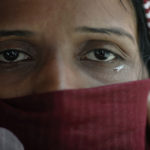WASHINGTON (RNS)—When it comes to protecting religious liberty abroad, watchdogs insist the U.S. State Department missed a key opportunity to put teeth into its annual assessment of global religious freedom, released by Secretary of State John Kerry.
Continuing a pattern begun under the previous presidential administration, the report does not include a list of “countries of particular concern,” or CPCs—the diplomatic term for countries that either actively suppress religious freedom or don’t do enough to protect it.
The list varies little from year to year—North Korea, Iran, China and a handful of others routinely are cited as the worst offenders. But the new report contains no worst-of-the-worst list that would single out offenders for sanctions or other punishment.
Big flaw
The lack of new CPC designations in the report is a big flaw, according to Rep. Frank Wolf, R-Va., often-acknowledged as the dean of religious liberty watchdogs on Capitol Hill.
“As religious freedom conditions continue to deteriorate globally, it is more important than ever that the State Department use this vital tool to press governments to end abuses, protect their citizens and respect this fundamental human right,” said Wolf and two other congressmen who fired off a letter to Kerry immediately after the report’s release.
Their concern was echoed by others who monitor religious liberty abroad, including the U.S. Commission on Religious Freedom, the independent body created by Congress that each year puts out its own list of worst violators.
Knox Thames, the commission’s director of policy and research, said the 1998 law that mandates the State Department report also requires new designations of CPCs annually. The current CPC list dates from 2011.
Timing is critical
Sign up for our weekly edition and get all our headlines in your inbox on Thursdays
For years, the annual report and the CPC designations were simultaneous. That changed late in the George W. Bush administration and has been continued under President Obama, Thames said. But the list of CPCs “is what gave all of this teeth,” he said.
The list prompts “countries to do things they don’t normally want to do.”
But Aaron Jensen, a spokesman for the State Department’s Bureau of Democracy, Human Rights and Labor said the CPC designations can be made on a different schedule than the report’s release and “at any time as conditions warrant.”
He said he has no information as to when the State Department may release a new CPC list.
Thames said he’s hopeful the new designations will come out this summer.
They work, he continued, offering Vietnam as an example of a country that bristled at its inclusion on the CPC list. But actual reforms, pressed by U.S. diplomats, resulted in a delisting in 2006.
Recommended changes
The U.S. Commission on Religious Freedom—which generally pushes the State Department to be more aggressive in insisting on religious freedom reforms in its diplomacy—recommended all eight countries on the State Department’s current CPC list be redesignated—Myanmar, China, Eritrea, Iran, North Korea, Saudi Arabia, Sudan and Uzbekistan.
The commission also wants an additional seven countries added to the CPC list: Egypt, Iraq, Nigeria, Pakistan, Tajikistan, Turkmenistan and Vietnam.
It’s true, said Paul Marshall, a senior fellow with the Washington-based Hudson Institute who specializes in religious freedom, that the State Department’s CPC list has been “very stable for a long time.”
There are some entrenched, authoritarian governments, such as North Korea’s, that don’t care if they make the list or not. But that doesn’t mean the CPC list and the report in general are not valuable, Marshall said.
Take CPC-designated Saudi Arabia, he said, where non-Muslim religious practice officially still is forbidden. The United States has pressed Saudi officials on the topic, and in recent years, the Saudis have said they are not going out of their way to root out non-Muslim observances, although they still prosecute them when they see them.
And in Myanmar, a long-standing member of the CPC club, the religious freedom situation has been fluid, and is something the U.S. government should track, Marshall said. So “the list is a good thing.”
Reports should guide policy
Jamsheed K. Choksy, a professor of Central Eurasian Studies at Indiana University and an incoming USCIRF fellow, said the problem actually is larger than the report or whether the CPCs are included.
“What needs to happen is that the government of the United States needs to take these reports and make them central aspects of American policy and foreign relations,” he said.
Retired Ambassador Randolph Bell, who runs the First Freedom Center, a Virginia-based religious freedom watchdog group, took a similar view. The lack or inclusion of new CPCs isn’t as crucial as whether U.S. foreign policy is going to act on the information gathered by its own staff and make religious freedom an organizing principle for U.S. bilateral and multilateral relations.
But in any case, Bell said, the United States needs to keep churning these reports out to keep attention focused on the cause of the repressed faithful.
“If they’re not there, then wouldn’t people who are focused entirely on U.S. trade and economics, or people focused on some other aspect of global affairs, say climate change, just go about their business?” he asked.














We seek to connect God’s story and God’s people around the world. To learn more about God’s story, click here.
Send comments and feedback to Eric Black, our editor. For comments to be published, please specify “letter to the editor.” Maximum length for publication is 300 words.